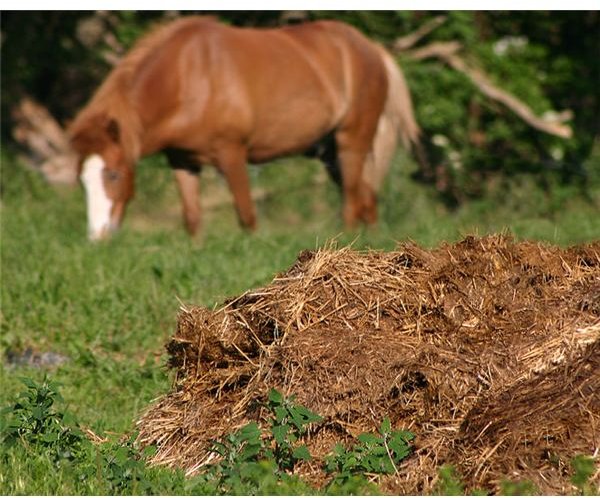Manure Advice for Use in Gardens: Hints & Tips for Using Animal Manure in Your Vegetable Garden Safely
Manure Has Long Been Used to Grow Good Crops
For time immemorial, farmers and gardeners have used manure to enrich the soil. It’s a natural cycle, easily observed. Animals hunt or graze, then drop their waste, where it decomposes and returns nutrients to the soil. It wasn’t a far step from observing this phenomenon to developing practices to best make use of manure. We’ve put personal experience to the test and combed the research from top agricultural and educational institutions to bring you, here, the best manure advice for use in gardens.
Note: this article is primarily intended for the vegetable gardener, because precautions need to be taken when using manure with food crops. You may use all types of manure for flower gardens.
What does Manure Provide for Your Garden?
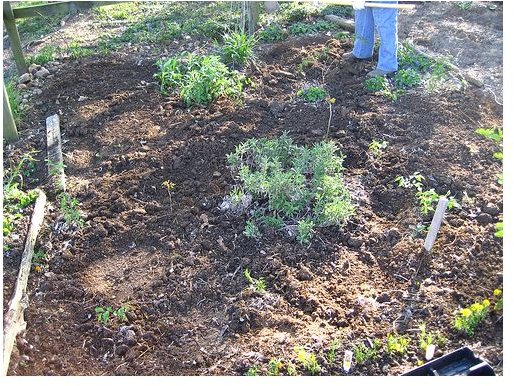
Remember we said almost any organic material. The following is a list of acceptable animal manures to use in gardens: chicken, cow, and horse are safe to use in gardens and are most commonly found. However, sheep, turkey, alpaca and rabbit may also be used if you happen to run across some. Bat guano is considered the crème de la crème, but honestly, cow, chicken and horse manure are much cheaper and easier to find and will enrich your garden tremendously.
Manure that doesn’t come from farm animals should be avoided. That includes cats, dogs, and yes, humans — and pigs. Manures from cats, dogs, pigs, and humans mustn’t be used because of parasites and pathogens contained in them. Stick with manures listed as safe above instead.
Never use fresh manure in a vegetable garden. Not only is even the mildest manure going to burn plants if fresh, it’s an extremely unsafe, dangerous practice. Only use aged manures or composted manures in vegetable gardens.
Using Manure in the Garden
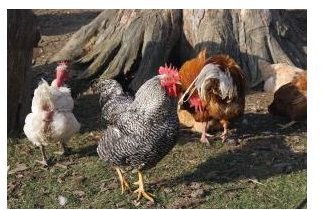
Here’s manure advice on the top three kinds — chicken, horse, and cow — and how to use it in your vegetable garden.
Chicken – Chicken manure is considered a very “hot” manure. It’s very rich in nitrogen, phosphorus and potassium, which makes it great to use composted. Never use fresh chicken manure as a side dressing (on top of the soil around plants). Fresh chicken manure will “burn” plants. This is because the plants are actually getting too much of a good thing. If you must use fresh chicken manure, work it into the garden in fall. Work composted chicken manure into your garden soil in spring or fall.
I had a bundle of old, but not composted chicken manure worked into my garden last spring just before planting. It burned some of my tomato transplants a bit, but they all survived and thrived.
Horse – While it contains about half the NPK of chicken manure, horse manure is still a hot manure. Horse manure should be hot composted for fall or spring incorporation into the garden, or only added to the garden in fall.
Cow – Manure from cows is very mild, around a quarter or less as strong as chicken manure. This makes aged cow manure safe to use even as a top dressing around plants, as well as incorporated into the soil. Use a light touch at first and be observant, because even the mildest manures can burn tender plants.
Aged vs. Composted Manure and Manure Tea
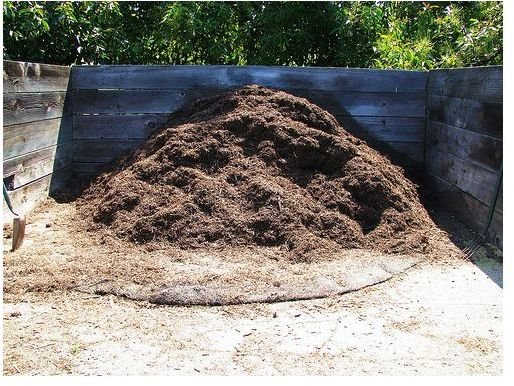
Fresh manure must never be used in vegetable gardens for the health of both humans and the plants themselves. What to do, then? Gardeners have two main options: aged manure and composted manure.
Aged Manure – What is this mysterious “aged manure” we keep hearing about? It’s manure that’s sat around for a year or more, six months at a minimum. This gives it time to lose the extra acidity that fresh manure has that contributes to burning tender garden plants. Aged manure still contains all those beneficial nutrients and micronutrients, but it’s much safer to use than fresh. If you have any livestock farms in your area or neighbors with chickens, you may have a source of aged manure close by. Otherwise, aged manure can be bought in garden centers.
Composted Manure – We think composting is overhyped and full of yuppie connotations — you mean I can’t just throw my egg shells into the garden anymore? And now I have to put organic waste into a pile, keep some magic ratio of carbon and nitrogen in the pile at all times, turn it regularly, and buy special microorganisms to add to it to keep it hot? Yeah, good luck with that.
If you are skilled at that composting business, feel free to compost some yourself; otherwise composted manure can be picked up at garden centers or you can use aged.
Manure tea — Sounds delicious! Manure tea is just as it sounds, water that has had bags of manure soaking in it. The liquid is a mellower, less concentrated version of the nutrient profile of manure, and thus is a great liquid to water plants with or another way to fertilize gently and safely.
Conclusion
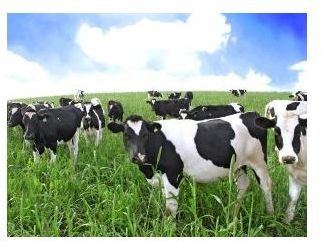
Aged and composted farm animal manures or bat guano are the very best way to incorporate essential nutrients and micronutrients into your garden soil. Our manure advice for use in gardens includes using aged or composted cow, chicken, or horse manure primarily (though others listed above as safe are good as well) and incorporating the manure into the soil in fall or early spring before planting. Be sure to never use fresh manure and never use cat, dog, pig or human manures in vegetable gardening. Manure will help make your garden’s soil rich, healthy, and easy to work, and your vegetable plants will thank you by being big and productive!
References
Guidelines for Using Manure on Vegetable Gardens, https://umaine.edu/publications/2510e/
Oregon State University, If you use manure in your garden, take precautions
Gardening Resources, Cornell University
Gardening Resources, Cornell University
Image credits:
Malene Thyssen, https://commons.wikimedia.org/wiki/User:Malene
DRB62, https://www.flickr.com/photos/drb62/3550184420
stock.xchng - Farmyard Chickens (stock photo by bugdog)
randomduck, https://www.flickr.com/photos/rudiriet/472621063/
